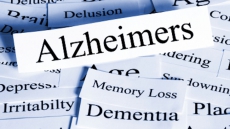Telling someone with anxiety or depression to “snap out of it” or “just get over it” is one of the worst things you can say.
What if we could break through those myths and misconceptions around conditions such as anxiety, depression, bipolar disorder, ADHD and more? Here are nine myths about mental illness:
You can ‘just get over it’
Telling someone with anxiety or depression to “snap out of it” or “just get over it” is one of the worst things you can say. It diminishes the severity and seriousness of the condition, makes it sound like you don’t believe what they are going through, and knocks down their self-esteem. If recovering from anxiety and depression was as easy as snapping your fingers and moving on with your life, it wouldn’t be as big a problem as it is today.

Mental illness only occurs in weak people
Mental illness can happen to anyone. It’s not about how smart or strong you are. It’s usually a result of an imbalance of certain brain chemicals, is hereditary, due to your environment or in response to specific life events and circumstances. Many smart and successful people, even celebrities, have been treated for a mental illness.
Mental illness isn’t real
According to the National Alliance on Mental Illness, approximately one in five adults in the U.S. — 43.8 million, or 18.5 per cent —experiences mental illness in a given year. Mental illness is very real and is accompanied by many uncomfortable and debilitating symptoms. It requires real professional help to get better.
My ADHD is kicking in
Joking about ADHD is not funny. We’ve seen a spike in the diagnoses of ADHD in recent times, many times an incorrect diagnosis at that. ADHD is a real neurodevelopmental disorder that occurs in children, young adults and can go on into adulthood. The typical symptoms include trouble concentrating and hyperactivity, but should never be used to label a child who is simply misbehaving or struggling in school.
My OCD is kicking in
OCD is often used to describe someone who is super organized, a neat freak or checks things over and over again. The truth is, OCD is a real anxiety disorder that severely interrupts a person’s ability to function unless certain rituals or sequences are followed.

Depression is just a bad case of the blues
Depression involves much more than just feeling sad. It’s a serious psychiatric condition that leaves the sufferer feeling tired, hopeless, at a higher risk of suicide, problems with appetite, feeling guilty, loss of self-worth and aches and pain. It requires therapy and/or medication to recover.
Anxiety is just nerves
Anxiety disorders are the most common psychiatric conditions and include OCD, panic disorder, PTSD and generalized anxiety disorder. Sometimes anxiety is in response to a specific set of circumstances that are quickly addressed and resolved. Other times, anxiety can become a real psychiatric condition that must be addressed for a lifetime.
Anti-anxiety and Anti-depressants and meds are handed out like candy
The truth is, many general practitioners and family doctors write too many prescriptions for psychiatric medications instead of referring their patients to a psychiatrist. Nonetheless, these medications are a lifesaver for people who are truly suffering from anxiety and depression.
Stress is not a big deal
Life is chaotic and all the craziness usually manifests itself as stress. Unfortunately, many people play this off as nothing to worry about. Stress is a very big deal and can lead to heart disease, high blood pressure and more. Learning to deal with stress is important for your mental and physical health. Try meditation, mindfulness and other relaxation techniques to relieve your stress.

ABOUT THE AUTHOR
Vinay Saranga M.D. is a psychiatrist and founder of Saranga Comprehensive Psychiatry. For more information, visit sarangapsychiatry.com






.jpg)
